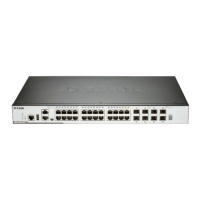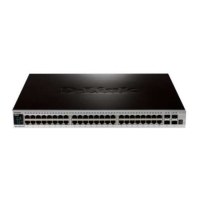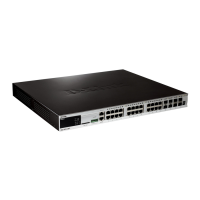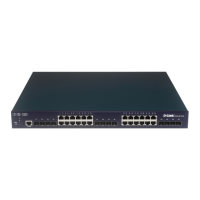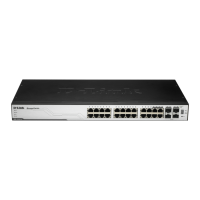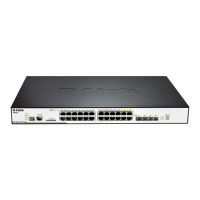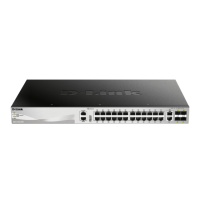DGS-3630 Series Layer 3 Stackable Managed Switch Web UI Reference Guide
493
IPv6
IPv6 Snooping
This window is used to display and configure the IPv6 snooping settings.
To view the following window, click Security > IMPB > IPv6 > IPv6 Snooping, as shown below:
Figure 9-56 IPv6 Snooping Window
The fields that can be configured in Station Move Setting are described below:
Parameter Description
Station Move
Select the station move options here. Options to choose from are Permit and
Deny.
Click the Apply button to accept the changes made.
The fields that can be configured in IPv6 Snooping Policy Settings are described below:
Parameter Description
Policy Name
Enter the IPv6 snooping policy name used here. This name can be up to 32
characters long.
Limit Address Count
Enter the address count limit value used here. This value must be between 0 and
511. Tick the No Limit option to disable this option.
Protocol
Select the protocol state here. Options to choose from are Enabled and
Disabled.
• Select DHCP to specify that addresses should be snooped in DHCPv6
packets.
• Select NDP to specify that addresses should be snooped in NDP packets.
• Select DHCP-PD to specify that the IPv6 prefix should be snooped in
DHCPv6-PD packets.
DHCPv6 snooping sniffs the DHCPv6 packets sent between the DHCPv6 client
and server in the address assigning procedure. When a DHCPv6 client
successfully got a valid IPv6 address, DHCPv6 snooping creates its binding
database. ND Snooping is designed for a stateless auto-configuration assigned
IPv6 address and manually configured IPv6 address. Before assigning an IPv6
address, the host must perform Duplicate Address Detection first. ND snooping
detects DAD messages (DAD Neighbor Solicitation (NS) and DAD Neighbor
Advertisement (NA)) to build its binding database. The NDP packet (NS and NA)
is also used to detect whether a host is still reachable and determine whether to
delete a binding or not.
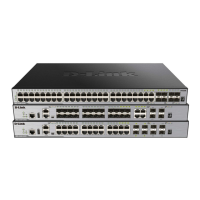
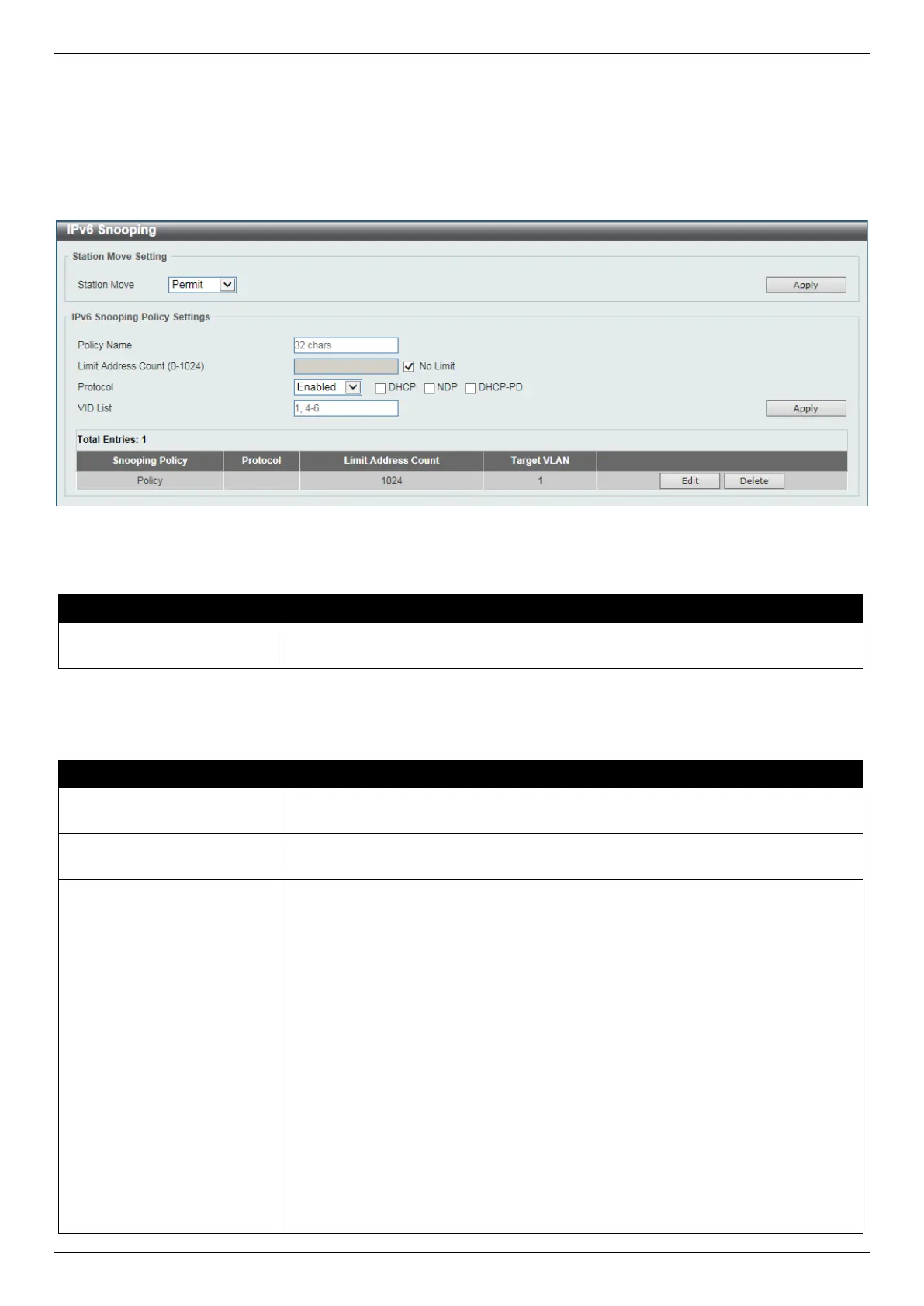